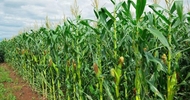Gwadar Pro | 5 January 2024
Pak-China collaboration to spice up chili trade
By Saira Iqbal
Pakistan is the fourth largest chili producer globally, with 150,000 acres of chili farms yielding 143,000 tonnes annually. This remarkable production capacity positions Pakistan favorably in the global chili market. At the same time, China's soaring demand for dry chilies, surpassing 200,000 tons annually, presents a significant opportunity for Pakistan to tap into a lucrative market and expand its chili exports.
"Pakistan enjoys zero tariffs under the China-Pakistan FTA. The close geographical ties between the two countries, combined with Pakistan's competitive labor force and fertile land, also present ample chili export opportunities, said Gohaz Ejaz, Pakistan's Minister of Commerce. He also emphasizes the goal of creating a surplus of high-quality chilies for large-scale exports. "We must invite and employ new technology, hybrid seeds, corporate farming and benchmark agriculture practices. Some Chinese players are already working with the local farmers and providing them with resources to grow high-quality chili.”
The China-Pakistan Chili farming project, a crucial component of the China-Pakistan Economic Corridor, can serve as a great example. Spanning across 16,000 acres of chili farming land, the project adopts an order-based contract farming model. The program has successfully trained over 1500 agricultural technicians in Pakistan, which led to a 100,000 Pakistani Rupee increase in per-acre output, reaching three times the unit production value of traditional crops.
Awis Mir, CEO and Founder of DEA Group of Companies, explains the benefits of collaborative partnerships, stating, "Chinese companies are not only providing technical support and guidance for seedling cultivation, field management, harvesting and drying of chili peppers, but also establishing a system that connects Chinese buyers with guaranteed demand." This system creates clusters of buyers, including state-owned enterprises, streamlining the supply chain and ensuring market access for Pakistani chili exporters.
As a significant milestone in the project's progression and Pakistan's agricultural exports, the first consignment of Pakistani chili was shipped to China earlier this month. "Now, Pakistan's trade deficit with China stands at $20 billion. This development brings us closer to achieving a sustainable trade balance between Pakistan and China,” remarked Ejaz.
Despite its great potential and remarkable advancement, the chili industry in Pakistan still faces challenges. According to the Trade Development Authority of Pakistan (TDAP), Pakistan exported 2,751 tons of dried red chili peppers in 2019, which decreased to 1,665 tons in 2022. "The severe flooding in these years has adversely affected chili production within the country. There are also problems in the drying process as well,” remarks Muhammad Irfan, Trade and Investment Counselor of the Pakistan Consulate in Guangzhou.
"To solve the related problems, Pakistan and China have signed Memorandums of Understanding (MoUs) and agreements. Pakistan, in particular, is offering land with preferential policies, especially in areas prone to floods, as part of their efforts to support the chili industry and mitigate the impact of climate change,” Irfan added. It is also revealed that the China-Pakistan Food Export Processing Zone will be established by the end of the year 2025.
With the deepening collaboration in the chili industry between China and Pakistan, the chili sector in Pakistan will continue to thrive and expand steadily, which will also pave the way for a flourishing trade of chili peppers between the two countries.














